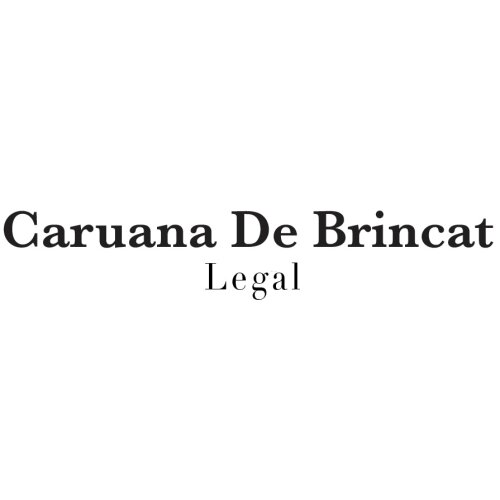Best Real Estate Contracts and Negotiations Lawyers in Malta
Share your needs with us, get contacted by law firms.
Free. Takes 2 min.
Free Guide to Hiring a Real Estate Lawyer
Or refine your search by selecting a city:
List of the best lawyers in Malta
About Real Estate Contracts and Negotiations
Real estate contracts and negotiations involve the legal and administrative processes required to transfer ownership of real property from one party to another. These contracts are formal agreements outlining the terms and conditions under which real estate transactions occur, including the sale, purchase, lease, or exchange of real estate. Skilled negotiations are essential to achieve favorable terms for all parties involved.
Law in Malta: A Brief Overview of Real Estate Contracts and Negotiations
Malta's real estate landscape is governed by a combination of Civil Code regulations, specific property laws, and taxation regulations. These laws ensure the legal transfer of property, protect both buyers and sellers, and facilitate the smooth operation of the real estate market. Malta's legal framework for real estate contracts emphasizes clear documentation, adherence to due diligence, and the registration of property transactions.
Why You May Need a Lawyer
Legal expertise is invaluable in real estate transactions given the complexity and high stakes involved. A lawyer can assist in various situations, such as:
- Reviewing and drafting contracts to ensure compliance with Maltese law and protection of client interests.
- Handling disputes over terms, conditions, or breaches in real estate agreements.
- Advising on legal and regulatory compliance when acquiring or leasing property.
- Facilitating negotiations for better commercial terms in property deals.
- Conducting due diligence on property titles and encumbrances to prevent future legal complications.
Local Laws Overview
Maltese real estate law is primarily derived from the Civil Code, supplemented by other specific regulations. Key aspects include:
- Registration: All real estate transactions must be registered with the Public Registry to be legally binding.
- Due Diligence: It's mandatory to verify property titles and check for any liens, mortgages, or encumbrances before completing a deal.
- Transfer Tax: A transfer tax is applicable on the selling price, which sellers need to account for in their financial planning.
- Contract of Sale: This is typically formalized through a promise of sale agreement (konvenju), which sets conditions before the final agreement.
- Consumer Protection: Regulations exist to safeguard the buyers, especially in off-plan property sales.
Frequently Asked Questions
What is a 'promise of sale' agreement?
The 'promise of sale' (konvenju) is a preliminary agreement binding both parties to complete the property sale under agreed terms at a future date.
Do I need a notary for my real estate transaction?
Yes, Maltese law requires a notary to draft and register the sale contract for property transactions.
Are there restrictions on foreigners buying property in Malta?
Yes, certain restrictions apply, including the need for an Acquisition of Immovable Property (AIP) permit unless buying in Special Designated Areas (SDAs).
What taxes are involved in property transactions?
Buyers are subject to stamp duty and sellers to a transfer tax based on the property's value.
Can an agreement for lease be enforced if it's not in writing?
While it's advisable for lease agreements to be in writing, verbal agreements can be enforceable though harder to prove in disputes.
What is due diligence in real estate?
It involves checking the legal title, planning permissions, and any burdens on the property to ensure a clear transfer of ownership.
Can I negotiate the terms in a real estate contract?
Yes, terms can often be negotiated to better suit both parties, particularly regarding price, payment plans, or any conditions to the sale.
How long does the property purchase process take in Malta?
This can vary, but typically it takes about three months from signing the promise of sale to completion.
What happens if a party breaches the contract?
Breach can lead to legal action, and remedies may include specific performance, damages, or contract cancellation.
Is it necessary to conduct a property survey before purchase?
While not mandatory, a survey can identify structural issues or other problems that may affect the property's value.
Additional Resources
- Ministry for Justice, Culture, and Local Government: Offers guidance on civil laws and regulations.
- Lands Authority: Provides information on land registration and related issues.
- The Notarial Council of Malta: Can assist in finding licensed notaries for real estate transactions.
- Real Estate Agencies: Many offer legal services or partnerships with law firms to facilitate transactions.
Next Steps
If you require legal assistance in real estate matters, consider the following steps:
- Contact a Maltese lawyer specializing in real estate law to discuss your specific needs.
- Prepare any documents or details relevant to your property transaction before your consultation.
- Consider obtaining a second opinion or quotes from multiple lawyers to understand market rates and services.
- If buying property, engage a reputable real estate agent who works closely with legal professionals.
Lawzana helps you find the best lawyers and law firms in Malta through a curated and pre-screened list of qualified legal professionals. Our platform offers rankings and detailed profiles of attorneys and law firms, allowing you to compare based on practice areas, including Real Estate Contracts and Negotiations, experience, and client feedback.
Each profile includes a description of the firm's areas of practice, client reviews, team members and partners, year of establishment, spoken languages, office locations, contact information, social media presence, and any published articles or resources. Most firms on our platform speak English and are experienced in both local and international legal matters.
Get a quote from top-rated law firms in Malta — quickly, securely, and without unnecessary hassle.
Disclaimer:
The information provided on this page is for general informational purposes only and does not constitute legal advice. While we strive to ensure the accuracy and relevance of the content, legal information may change over time, and interpretations of the law can vary. You should always consult with a qualified legal professional for advice specific to your situation.
We disclaim all liability for actions taken or not taken based on the content of this page. If you believe any information is incorrect or outdated, please contact us, and we will review and update it where appropriate.
Browse real estate contracts and negotiations law firms by city in Malta
Refine your search by selecting a city.

















